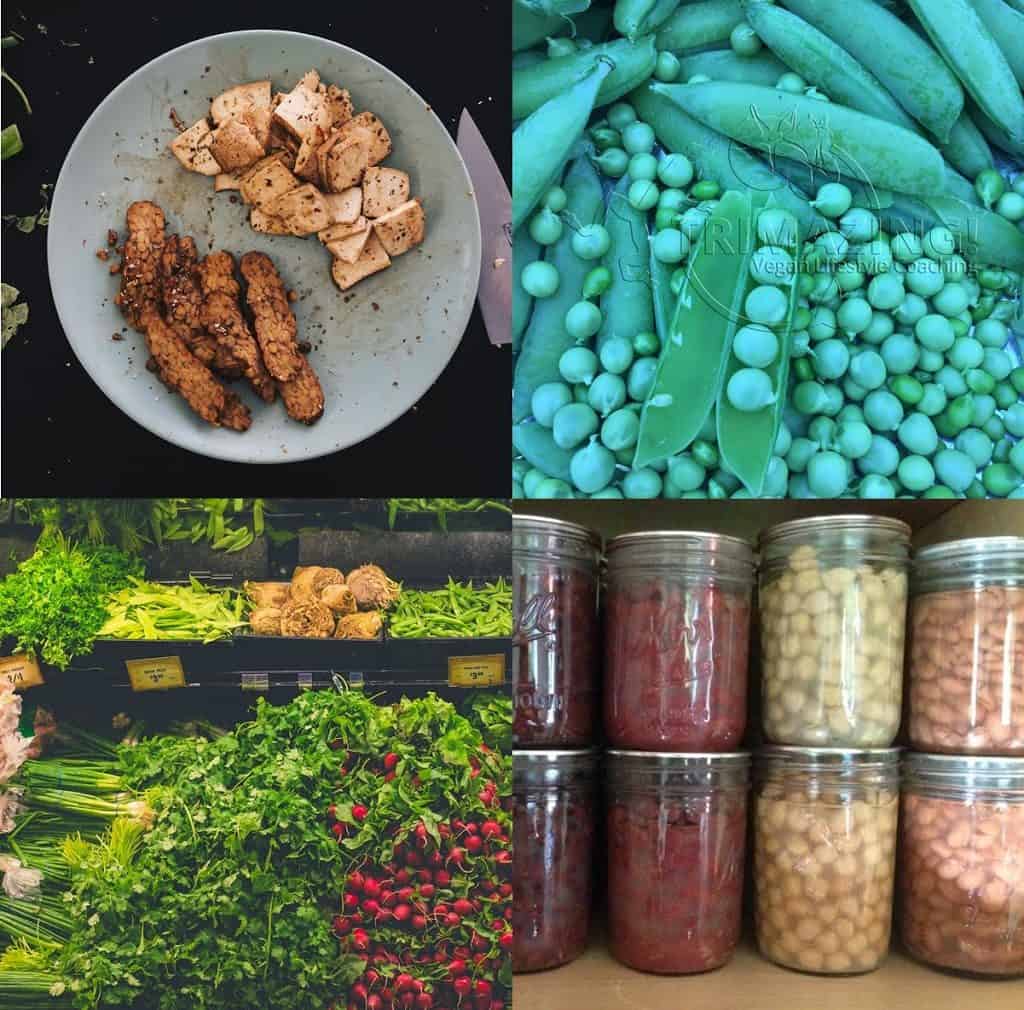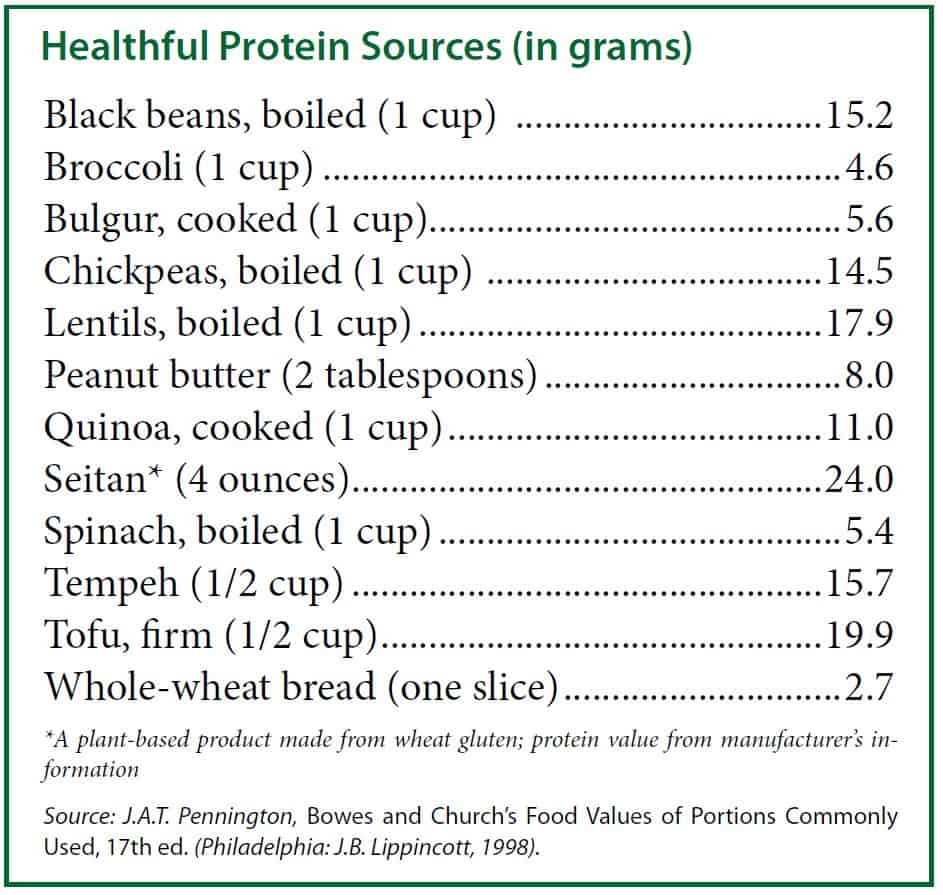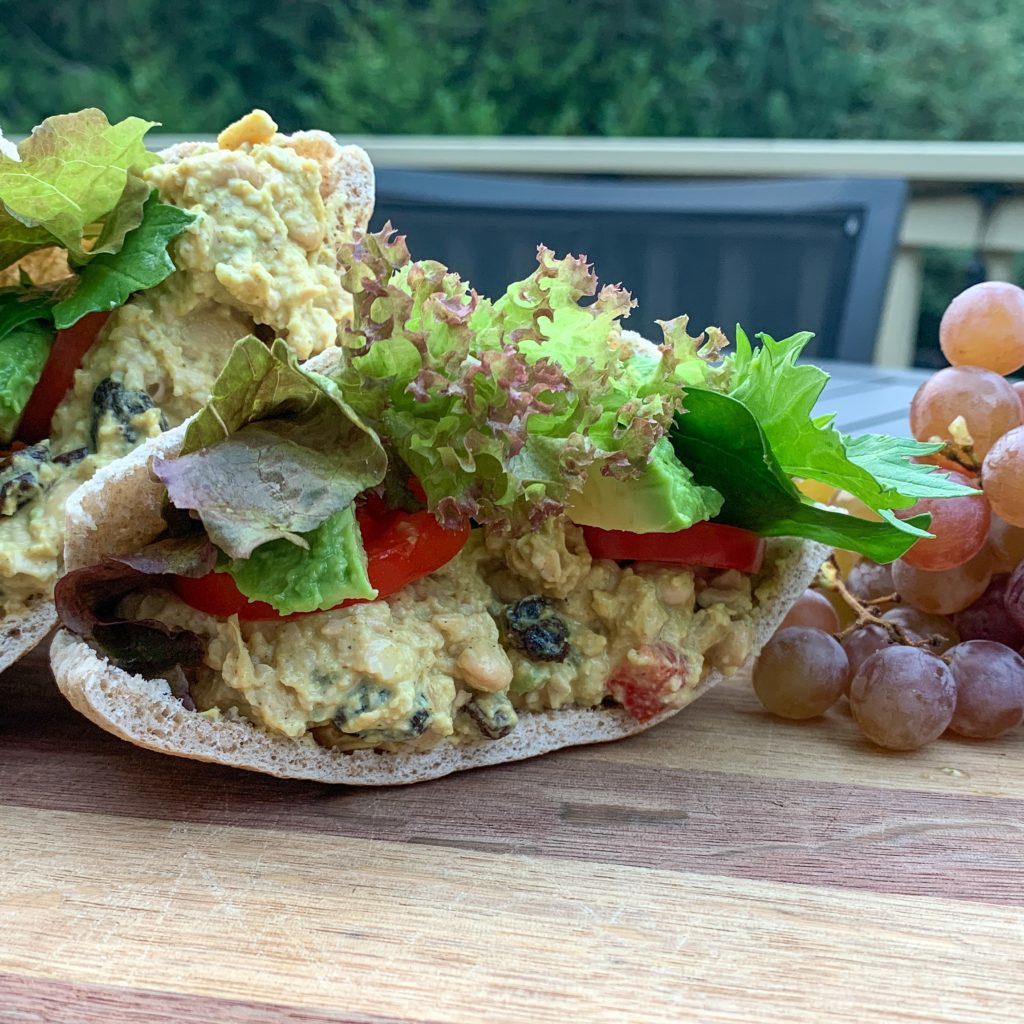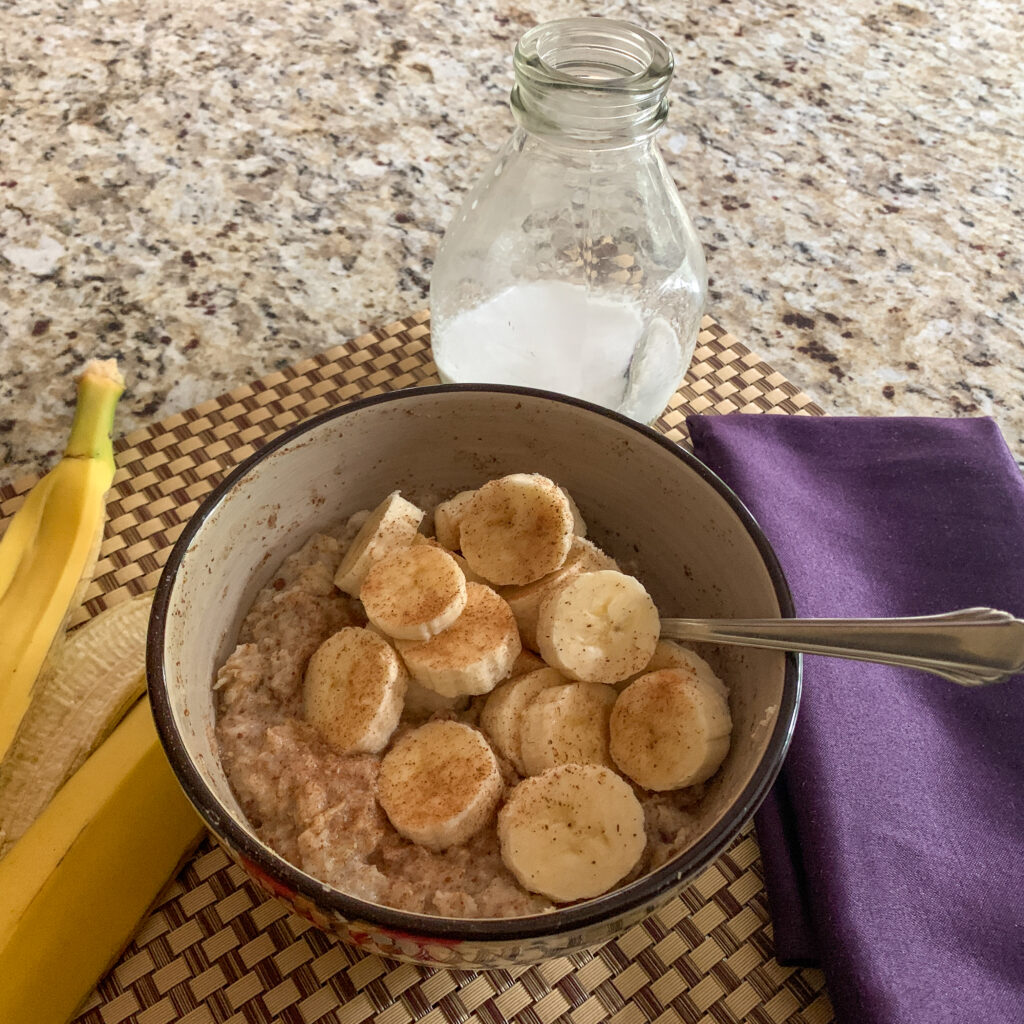Vegan Protein

One of the biggest sources of confusion for many of my clients is in regards to protein. Folks worry that they won’t get enough protein eating whole food, plant-based (WFPB) vegan, and they’ve usually been warned by friends and family about this. It turns out, though, that there’s a lot of misconceptions about protein, how much we really need, and what our bodies use protein for.
What is Protein and Why is it Important?
Protein is one of the three macronutrients our bodies need, along with carbohydrates and fat. Made up of long chains of amino acids, proteins are held together by peptide bonds into different structures. There are only 20 different amino acids which combine in different combinations to make up over 100,000 different proteins in our bodies. Of the 20 amino acids, there are nine that we only get from food—these are called essential amino acids; the other 11 can be made by the body.
Once we consume proteins, the body works to break the peptide bonds holding the amino acids together so they can be absorbed and utilized to make new proteins your body needs. Note, if you eat collagen, you will not be necessarily depositing that collagen as collagen in your body—your body breaks down the collagen into its individual amino acids and then uses them to build whatever proteins your body needs, which may or may not be collagen! Thinking we need to eat a specific protein to deposit that exact protein in our body would be like eating an eyeball expecting to grow a new eyeball—it just doesn’t work that way.
Energy comes from carbohydrates and fats, not protein. The optimal diet, according to the Physicians Committee on Responsible Medicine (PCRM), is made up of high carbohydrate, low fat, and adequate protein.
How Much is Adequate Protein?
The formula for how much protein we need is 0.8 grams of protein per kilogram of ideal body weight per day (0.36 grams of protein per pound of body weight). So a 150 pound person (or someone who is working toward an ideal weight of 150 pounds) requires 54 gram of protein a day. The USDA‘s recommended daily allowance (optimal amount, not minimum) of protein is 56 grams for men and 46 gram for women, calculated right from this formula. Those populations with the highest longevity subsist on a diet made up of only 10% protein.
What if we Get Too Much Protein?
According to the PCRM, from evidence-based medical studies on humans, chronic overconsumption of protein contributes to osteoporosis, cancer, impaired kidney function, heart disease, and obesity.
Is Protein Deficiency an Issue?
Protein deficiency is extremely rare in the United States. The bigger issue is too much protein. If you are eating enough calories, you are getting the protein your body requires.
What about the Difference Between Animal- and Plant-based Protein?
Animal sources contain exceedingly high amounts of protein, more than our bodies need. For example, a small, 6-ounce steak has 70 grams of protein—immediately exceeding the recommended daily allowance of protein for an adult. The Standard American Diet is far exceeding the amount of protein required in the daily diet. But beyond the high amounts of protein, animal products are laden with cholesterol and saturated fats we don’t want, and completely lacking in antioxidants and fiber, dietary components necessary for human health.
Plants are full of proteins! Surprised? Where do you think plant-eating animals get their protein? Herbivores get their protein from the plants (grass, grains, etc.) they eat. The largest mammals, elephants, gorillas, cows, are all herbivores and do not suffer from protein deficiency. You will probably be surprised at the amount of protein in common plant foods:

Even apples and bananas contain protein! Apples have nearly 0.5 gram of protein for a cup of sliced apple, and there are 2.45 grams per cup of mashed banana. You can see how protein can quickly add up with plant foods. You can look up protein content of any food at the USDA Food Composition Database.
Not only do plants contain proteins, they are full of carbohydrates, our bodies’ preferred energy source, along with antioxidants and fiber missing from meat, dairy, and eggs.
Complete Proteins
Proteins are made up of amino acids. Plants are complete proteins, in that they contain all nine amino acids your body can only get through food. While the amount of each of these amino acids vary from plant to plant, if one item is low in a particular amino acid, others will be bursting with it, therefore you are getting a diet rich in complete essential amino acids and protein by including a variety of plant foods in your meals.
Resources on Protein
There are a lot of great resources about protein available out there:
- T. Collin Campbell Center for Nutrition Studies
- Physicians Committee on Responsible Medicine Fact Sheets
- NutritionFacts.org
- Vegetarian Resource Group, Protein in the Vegan Diet
- Vegetarian Nutrition Dietetic Practice Group, Protein in Vegetarian and Vegan Diets
- Mayo Clinic, High-Protein Diets: Are They Safe?
- Harvard School of Public Health, Protein
- The Exam Room Podcast, The Protein Myth

Do you like this post? Please share....
[mashshare]
If you liked this post, you might like one of these:
Categories:
Tags:

[Trī-māz-ing]
Cindy wants you to be Trimazing—three times better than amazing! After improving her health and fitness through plant-based nutrition, losing 60 pounds and becoming an adult-onset athlete, she retired from her 20-year firefighting career to help people just like you. She works with people and organizations so they can reach their health and wellness goals.
Cindy Thompson is a national board-certified Health and Wellness Coach, Lifestyle Medicine Coach, Master Vegan Lifestyle Coach and Educator, Fitness Nutrition Specialist, Behavior Change Specialist, and Fit2Thrive Firefighter Peer Fitness Trainer. She is a Food for Life Instructor with the Physicians Committee for Responsible Medicine, Rouxbe Plant-Based Professional, and Harvard Medical School Culinary Coach, teaching people how to prepare delicious, satisfying, and health-promoting meals.
She provides health and lifestyle coaching at Trimazing! Health & Lifestyle Coaching. Cindy can be reached at info@trimazing.com.
Subscribe to the Trimazing Blog
Receive occasional blog posts in your email inbox.
Subscribe to the Trimazing Blog
Receive occasional blog posts in your email inbox.





















